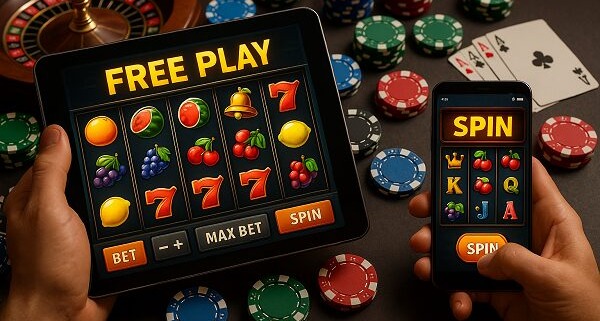Can Free-to-Play Games Improve Your Betting Strategy?
In the world of betting, developing a winning strategy isn’t just about stats and odds—it’s also about discipline, pattern recognition, and emotional control.
While seasoned bettors often rely on tools like spreadsheets, tipster services, or staking plans to sharpen their edge, there’s an unexpected training ground that many overlook: free-to-play games.
At first glance, casual slot games or social casino platforms might seem like pure entertainment with no relevance to serious betting. But take a closer look, and you’ll find that these environments can actually reinforce essential habits and mindsets that translate well into smarter, more responsible betting strategies.
Building Pattern Recognition Without the Risk
One of the key benefits of free-to-play games—especially slot-based ones—is the opportunity to observe patterns and test reactions in a risk-free environment.
While outcomes are always random and not predictive, engaging with spinning reels or bonus features can train your eye to spot volatility patterns, understand probability concepts, and respond to outcomes with a level head.
Platforms like Highroller, a top-tier social slot experience offer a diverse mix of free-to-play games that showcase different volatility levels, win mechanics, and return-to-player rates—all without requiring any coins of real-world value.
This makes them ideal for experimenting with gameplay dynamics while honing decision-making instincts.
Learning to Manage Emotions and Expectations
Ask any experienced bettor and they’ll tell you: emotions can derail even the most statistically sound strategies.
A common downfall is chasing losses or getting overconfident after a big win. Interestingly, these same tendencies often show up during sessions on casual games, even when no coins of value are at stake.
Free-to-play environments give you the space to practice emotional regulation. You can simulate common betting scenarios—like going on a losing streak or hitting a surprise big win—without the stress of financial loss.
Over time, this can help you become more self-aware of your tendencies and better equipped to stick to your staking plan or bankroll management strategy during real-world betting.
Understanding Return to Player (RTP) and Volatility in Action
While most bettors are familiar with odds in sports or horse racing, they may not always apply the same understanding to long-term outcomes.
Free-to-play games—especially those modeled after traditional slot mechanics—can provide a useful demonstration of Return to Player (RTP) and volatility profiles in practice.
By observing how often wins occur and the size of those wins, you get a clearer feel for what it means to play a low- or high-volatility game, much like deciding whether to back a favorite at short odds or take a risk on a high-value outsider.
A great explainer on the concept of volatility and RTP is provided by The UK Gambling Commission’s RTP guidelines.
Training Your Decision-Making Process
Free-to-play platforms often include mini-games, bonus features, and different ways to play, which require fast decisions under time pressure. For example, choosing which bonus feature to activate or whether to continue spinning or stop.
These decision points mimic the same cognitive muscles used in betting: reading the moment, assessing risk, and making a call based on limited information.
Regularly making these small decisions helps train your brain to stay sharp, focused, and intentional during real betting sessions.
Reinforcing Bankroll Management Habits
Even in games that don’t involve real-world currency, there’s usually an in-game coin system, with a balance that players need to manage.
This gamified resource management teaches basic bankroll awareness—deciding whether to go for a higher play amount for bigger wins or stick to smaller plays for longevity.
Though the stakes are virtual, the lessons can transfer. If you find yourself consistently running out of coins too quickly, it might be a sign that your staking discipline needs work—insight that can help you avoid the same pitfalls when betting with real funds.
An Unexpected Training Ground
While free-to-play games should never be seen as predictors of betting outcomes, they can act as effective tools to improve your betting mindset. They offer a no-pressure space to observe your behaviors, test new approaches, and refine mental strategies.
For bettors who are serious about continuous improvement, incorporating social gaming into your routine isn’t just entertainment—it’s low-stakes training with real cognitive value.






Leave a Reply
Want to join the discussion?Feel free to contribute!